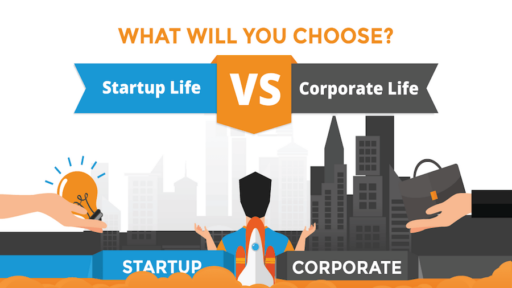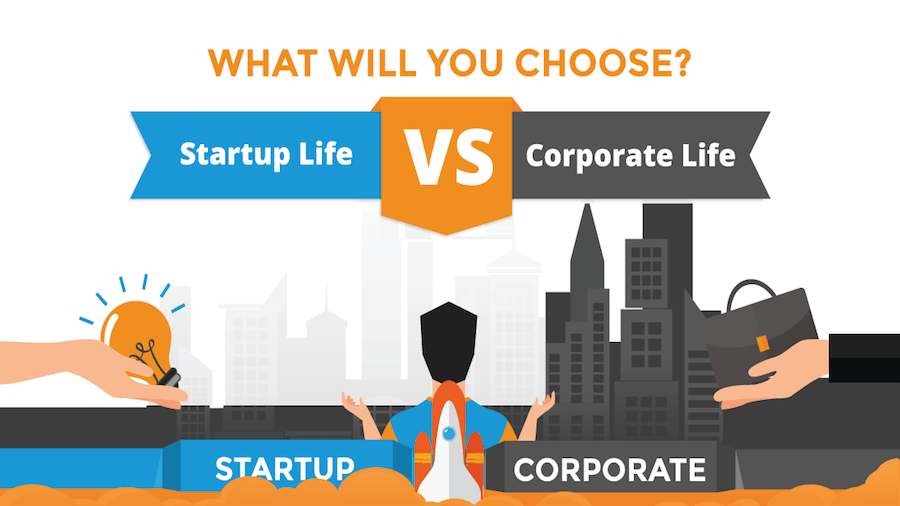Choosing between a startup and a corporation can be a tough decision, especially when it comes to career development. BHowever, the nature of career development tends to differ significantly between these two business models.Understanding these differences can help you make an informed choice that aligns with your career goals. Here’s a simple guide to help you navigate your career development in startups versus corporations.
The Startup Experience
- Fast-Paced Learning
- In a startup, things move quickly. You’ll wear many hats and learn a variety of skills in a short amount of time. This environment can be exhilarating and is perfect for those who thrive on constant change.
- High Responsibility
- Startups often have smaller teams, which means more responsibility for each member. You might find yourself leading projects or making decisions that would take years to reach in a larger corporation.
- Innovation and Creativity
- Startups are known for their innovative spirit. If you have a lot of creative ideas and want to see them come to life, a startup might be the right place for you.
- Flexibility and Work Environment
- Many startups offer flexible work hours and a casual work environment. This can lead to a better work-life balance and a more enjoyable work experience.
The Corporate Experience
- Structured Growth
- Corporations typically have clear career paths and structured development programs. If you prefer a well-defined progression and stability, corporations are ideal.
- Comprehensive Training
- Large companies often invest heavily in training and development. You’ll have access to workshops, courses, and mentoring programs that can enhance your skills and knowledge.
- Resources and Benefits
- Corporations have more resources at their disposal. This means better job security, higher salaries, and comprehensive benefits like health insurance, retirement plans, and paid time off.
- Networking Opportunities
- Working in a corporation gives you access to a vast network of professionals. This can be invaluable for your career growth, providing opportunities to connect with mentors and industry leaders.
Key Differences
- Career Path Flexibility
- In startups, career paths can be more fluid and adaptable. You might move quickly into new roles or pivot to different areas of the business. In corporations, career paths are more rigid but offer stability and predictability.
- Risk and Reward
- Startups come with higher risks but potentially higher rewards. If the company succeeds, you might benefit significantly from stock options or profit-sharing. Corporations, on the other hand, offer more security but typically less dramatic financial rewards.
- Work Environment
- Startups usually have a more casual and dynamic work environment, while corporations tend to be more formal and structured. Your preference here can significantly impact your job satisfaction.
Which is Right for You?
Choosing between these two busines models depends on your career goals and personal preferences. If you’re excited by fast-paced learning, innovation, and don’t mind taking risks, a startup might be the perfect fit. If you value stability, structured growth, and comprehensive benefits, a corporation could be the better choice. Whichever path you choose, remember that your growth depends on your willingness to learn, adapt, and seize opportunities.







